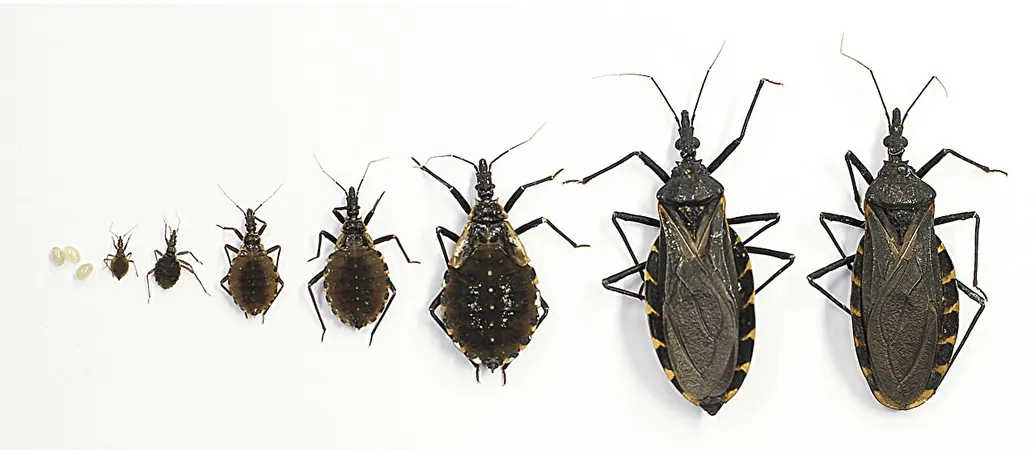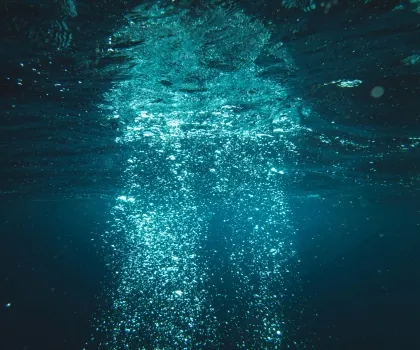
Time to Acknowledge Chagas Disease as an Endemic Threat in the U.S.
2025-09-03
Author: John Tan
A Call to Action by Leading Researchers
Researchers from Texas A&M University, the University of Florida, and the Texas Department of State Health Services are sounding the alarm: Chagas disease should be recognized as endemic in the United States. Their compelling perspective piece, featured in Emerging Infectious Diseases, presents mounting evidence of local transmission.
Raising Awareness About Chagas Disease
Dr. Gabriel Hamer, an entomologist at Texas A&M, stresses the critical need for awareness surrounding this often-overlooked disease, stating, "Our goal is to educate people that Chagas disease is indeed a concern right here in the U.S." He points out a troubling trend where medical and veterinary training programs dismiss Chagas as merely a tropical disease, ignoring its relevance to public health.
The Threat Lurking in Our Backyards
The real danger comes from kissing bugs—blood-sucking triatomines that inhabit 32 states and carry the parasite Trypanosoma cruzi, responsible for Chagas disease. Alarmingly, eight southern states have reported locally acquired T. cruzi infections, with Texas at the forefront of these cases.
The Importance of Timely Diagnosis and Treatment
Dr. Norman L. Beatty from the University of Florida College of Medicine highlights that raising awareness can lead to earlier diagnosis and more effective treatment options, stating, "Identifying Chagas as endemic will prompt public health agencies to take this threat seriously." Without recognition, the disease can remain hidden for years, causing long-term damage.
Defining Endemic: More Than Just a Word
According to the CDC, 'endemic' refers to a disease's constant presence within a specific region. Researchers advocate for reclassifying Chagas, as this shift could dramatically improve public awareness and surveillance efforts.
Wildlife: The Unseen Link in Transmission
Co-author Dr. Sarah Hamer explains how various wildlife species are part of the Chagas ecosystem, providing blood meals for kissing bugs and acting as reservoirs for the parasite. This interplay requires a 'one health' approach to fully grasp the transmission dynamics at play.
A Call for Public Vigilance
Dr. Hamer warns that underestimating Chagas disease jeopardizes public safety and creates a false sense of security. With evidence confirming that both vectors and the parasite are present in the United States, he insists that public health messaging must align with scientific reality. "Communities must be educated so they can respond effectively to this growing concern," he asserts.



 Brasil (PT)
Brasil (PT)
 Canada (EN)
Canada (EN)
 Chile (ES)
Chile (ES)
 Česko (CS)
Česko (CS)
 대한민국 (KO)
대한민국 (KO)
 España (ES)
España (ES)
 France (FR)
France (FR)
 Hong Kong (EN)
Hong Kong (EN)
 Italia (IT)
Italia (IT)
 日本 (JA)
日本 (JA)
 Magyarország (HU)
Magyarország (HU)
 Norge (NO)
Norge (NO)
 Polska (PL)
Polska (PL)
 Schweiz (DE)
Schweiz (DE)
 Singapore (EN)
Singapore (EN)
 Sverige (SV)
Sverige (SV)
 Suomi (FI)
Suomi (FI)
 Türkiye (TR)
Türkiye (TR)
 الإمارات العربية المتحدة (AR)
الإمارات العربية المتحدة (AR)